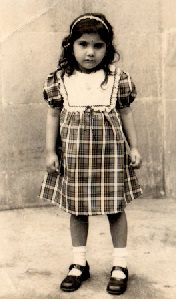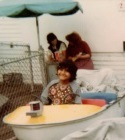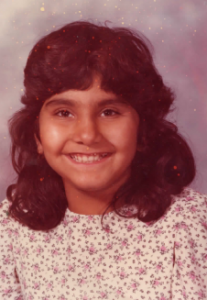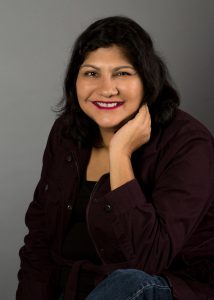Note: This essay, by my friend, author MK Schiller, was originally published in May 2019 on the website for the Romance Writers of America. Because I believe this timely and poignant piece should be viewed by a wider audience, I have reprinted here with permission. I hope MK’s words speak to your minds and hearts the way they have spoken to mine. – Dana
[Please be aware this article contains mention of a suicide attempt. If you or someone you know is in crisis, call the toll-free National Suicide Prevention Lifeline (NSPL) at 1-800-273-TALK (8255), 24 hours a day, 7 days a week.]
By MK Schiller
I believe that all books are a window into something else. As a child, I thought of them as little adventures to devour. Lately, though, I’m realizing they should also be mirrors.
There has been a great deal of discussion and dissonance around bias, discrimination, and disparities. As an author of romance books, I’ve seen how hard and painful this hits with publishers not taking on romance books by authors of color and our industry awards not reflecting a fair representation. I’m not here to debate these facts. They are facts. RWA [Romance Writers of America] has put out an official statement acknowledging this and promising to do better. The Ripped Bodice, the only exclusively romance bookstore in the United States, has put out a detailed report. Authors have done detailed mathematical calculations to confirm. One author actually changed her story so the characters of color were no longer listed and became a finalist for an award.
These are uncomfortable truths, but there is no doubt: They. Are. Truths. What I do want to lend my perspective on is why it is so important that we have diverse books by sharing some very personal and uncomfortable truths of my own.

I’ve been following the political speeches of every presidential candidate around the same time I was consuming all the threads, blog posts, and TED talks about diversity in literature, particularly in the romance industry. Recently, I heard an impassioned speech by Mayor Pete Buttigieg where he said, when he was younger, he wished there was a pill that made him straight. He would have taken it. That statement stuck with me. Now, I’m not in the LGBTQ community, but the message spoke to me in quiet whispers late at night and loud shouts in the middle of the day. It would be weeks before the epiphany came as to why this message resonated. I want to explain that here.
I am an only child. I was born in India, and I came to the United States in 1978 as a shy four-year-old. I grew up in a predominately white suburb of Detroit. Back then, there weren’t many Indian families in my neighborhood. In fact, when we saw another Indian family, my parents would often stop to chat. When people asked me what I was and I said Indian, the next question was, inevitably, “What tribe?” And, yes, it was “What are you?” and not “Where are you from?”
When we start with the “what” question, it shows disinterest and disrespect to start with. I began to answer, “I’m Indian from India” just to clarify. It often felt as if no one was really listening by this point anyway. I was different. I was an alien. I was an “other.”
The crazy thing about assimilation is that you don’t realize it’s happening. It’s a slow progression like a virus that lays dormant for years and produces a cough here or an ache there. Until you realize, you’re fully symptomatic.
Looking back, I can’t pinpoint when I made the decision that I would belong no matter the consequences, but that is what I did. It didn’t really occur to me that I’d let this happen, until a close friend told me that I needed to stop running away from my culture. I was livid and hurt. And part of me felt like I wasn’t doing this, since I’d grown up without a support group. I was an island. The brown immigrant girl from Mumbai who’d come to this country barely speaking a word of English. One who had grown up to be too Western to be accepted at home and too Eastern to be accepted in my new home.

Maybe the assimilation process started when the teacher called my house to ask my parents to stop speaking our native tongue as I was getting confused in school. So they did, and as a result, I lost my language. Maybe it happened when I brought in a Filmfare magazine, an Indian periodical, for my current events article in fourth grade and the whole class made fun of one of the advertisements. Or when I’d come back from a recent trip to India in middle school, and one of my classmates asked if I lived in a tent and rode an elephant to school. Or was it that time we’d had a class potluck and one of the girls in my class said she didn’t like foreign food, so she would not be trying my contribution. I had brought animal crackers. Maybe that’s when I realized it wasn’t food she didn’t like, but the girl who brought it.
No one could pronounce my name. It got so bad that I squirmed in my seat when we had a substitute teacher, just waiting for them to pause during attendance. I knew my name on the roll-call sheet caused the confused expression. I told myself to say it before the teacher could. Say your name! Scream your name! I would silently chide myself, but I was too shy. Meghana turned into Meg-a-hana, Mohagany, and that one time, when the paper was folded over and the M was missing, Eggana. Now, I understand mispronunciations happen. Even in third grade, I understood that. But what was hard to digest was how the entire class would snicker, and the rest of the day I’d be stuck with that version of my name. Sometimes, this went on for months. It became such a trigger that, after twenty years of it, I began to hate my name. I loathed it. I eventually had it legally changed. I didn’t tell people when we planned trips to India or talk about what my trips were like. Obviously, everyone had their own ideas. I asked my mom to stop packing rotis and idly (rice cakes) in my lunch. Kids would look at my food and pretend to throw up. They said I smelled of curry.
I walked a different way home, on a main, traffic-laden street, just to avoid the boys who would throw stones at me … literally. I’m not saying my bullying was all a result of discrimination. Kids are cruel. Kids are assholes. I’m sure I, too, was an asshole at times.
They would have probably made fun of me if my name was Missy and I wore Jordache jeans every day, but I don’t think so. I rooted my identity into the bullying. They became one and the same. If I wasn’t different, then this would not be happening to me.
I didn’t want to be an other. I longed to be the same.

I realized that, like Mayor Pete, I longed for a pill. To make me less Indian. I would have gladly taken it. I would have drunk that syrup, no matter how bitter. I would have injected that shot. I would have swallowed that pill.
I did swallow that pill. I swallowed about a two hundred of them on a dark day in May after a really bad day in eighth grade.
My family doesn’t talk about what happened. Words like depression weren’t really discussed. I’ve now received counseling, but the wounds are still there.
My body rejected the poison, and I spent the next twelve hours over the bathroom toilet.
When I think about why I felt this way, I could not define it until now. I felt alone. The only happiness in my life was in books. My father, an avid reader himself, had encouraged me to make friends with books long before I could make friends with people.
I ate at the popular table at Sweet Valley High and faced some twisted plots in just about every V. C. Andrews book, and even so, there weren’t many depictions of me in books. The only South Asian on television was Apu, with his over-the-top accent and clichés. I hadn’t seen myself as anything more than a caricature.
That’s why media needs to be a mirror.

Last year, I stood in line at RWA [Romance Writers of America National Convention] to get a signed book by Kristan Higgins. She’s written a book about a woman named Nora Stuart, a successful doctor returning home and still coping with the remnants of the bullying she’d gotten in high school. It resonated with me. I’d met Kristan many times over the years, but now, having read at least half a dozen of her books, I was all about the fan girling.
I wanted to be eloquent and show professional admiration to let her know how much Nora meant to me. None of that happened. Instead, I started blubbering when I reached the front. You see, Nora kind of reminded me of … me. She brought out my fears and joy. I laughed and cried with her in that book. That’s what good fiction does at its best. It’s not just a window into the world. It a mirror into ourselves. No other media has the power to do that. You may not be able to walk in someone else’s shoes, but reading about a character might let you borrow their socks for a few hours.
I wonder, seriously wonder, if that girl who felt like an outcast, like an island, would have taken those un-magic pills if she’d had examples like Mindy Kaling, Lilly Singh, and Hasan Minhaj in her life. What if she’d had books by Rainbow Rowell, Jenny Han, and Sandhya Menon?
What if her classmates, teachers, and parents understood how words can destroy as well as rebuild? What if they understood that we all have something to teach each other?
This is why stories matter, and more than one story is important. They tell us we’re not alone. They connect our island.
Not knowing a word of English, MK Schiller came to America at the age of four from India. Since then, all she’s done is collect words. After receiving the best gift ever from her parents—her very own library card—she began reading everything she could get her greedy hands on. At sixteen, a friend asked her to make up a story featuring the popular bad boy at school. This wasn’t fan fiction…it was friend fiction. From that day on, she’s known she wanted to be a writer. With the goal of making her readers both laugh and cry, MK Schiller has penned more than a dozen books, each one filled with misfit characters overcoming obstacles and finding true love.
